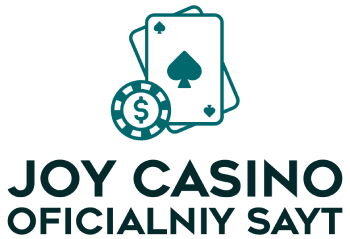Navigating the realm of gambling requires setting limits and recognizing potential issues to maintain a healthy balance. Having the tools to enjoy a wager without falling into harmful behaviors is crucial. Responsible gambling practices help safeguard against negative consequences and promote a positive relationship with games of chance.
Achieving responsible gambling involves self-awareness and proactive steps. By exploring ways to ensure that gambling remains enjoyable and within control, individuals can mitigate risks and promote healthier habits.
Importance of Responsible Gambling
Maintaining responsible gambling practices is essential to safeguarding a balanced relationship with betting and gaming activities. By consciously monitoring your gambling behavior, you can ensure that it remains a source of entertainment rather than a potential risk.
Establishing limits on both time and monetary investments in gambling helps maintain control and mitigates the possibility of significant losses. Understanding the inherent risks associated with gambling and making well-informed choices when placing bets are key components of responsible gambling.
By adhering to responsible gambling principles, individuals shield themselves from potential financial hardships and psychological strain that may result from irresponsible conduct. Seeking assistance is encouraged if one detects problematic gambling patterns.
Prioritizing personal well-being and engaging in responsible gambling practices contribute to a positive gambling experience.
Establishing Personal Limits
To maintain a healthy relationship with gambling, it’s essential to establish personal limits that govern your gaming activities. Here are four practical steps to assist you in setting effective boundaries:
-
Budget Wisely: It’s important to determine a budget for gambling that aligns with your financial situation. Consider how much money you can comfortably afford to spend on gambling without risking financial instability.
-
Set Time Limits: Allocate specific time periods for gambling and adhere to them strictly to prevent excessive play. Setting boundaries on the amount of time spent gambling can help maintain a healthy balance in your life.
-
Define Winning and Losing Limits: Establish clear limits on how much you’re willing to win or lose before ending your gambling session. This pre-determined threshold can help you avoid chasing losses or getting caught up in the excitement of winning beyond what’s considered reasonable.
-
Avoid Chasing Losses: If you reach your pre-set losing limit, it’s crucial to resist the temptation to continue playing in an attempt to recoup your losses. Chasing losses can lead to further financial harm and impede your ability to gamble responsibly.
Signs of Problematic Behavior
Identifying signs of problematic behavior in gambling habits is crucial for early intervention. Watch out for indicators such as an escalating need to gamble with larger sums to maintain excitement, preoccupation with gambling activities, restlessness or irritability when attempting to reduce or stop gambling, and using gambling as a coping mechanism to avoid facing personal issues like helplessness, guilt, anxiety, or depression.
Additional red flags include deception to hide the extent of gambling, jeopardizing relationships or opportunities due to gambling, seeking financial assistance from others to address gambling-related financial difficulties, and resorting to illegal means to finance gambling.
If you recognize these behaviors in yourself, seeking help and support is advisable.
Also, check out our article The Role Of Superstitions In Gambling Behavior
Seeking Help and Support
If you have recognized problematic behaviors in your gambling habits, it’s important to take proactive steps towards seeking help and support. Here are some practical ways to reach out for assistance:
-
Consider talking to a trusted friend or family member about your struggles. Opening up about your challenges can be an important first step in seeking help.
-
Contact a professional counselor or therapist who specializes in gambling addiction. They can offer guidance and support tailored to your specific needs.
-
Joining a support group for individuals dealing with gambling issues can provide you with a sense of community and understanding.
-
Utilize helplines and online resources that are dedicated to assisting individuals with gambling problems. These resources can offer information, guidance, and support to help you address your concerns.
Promoting Healthy Gambling Habits
It’s advisable to implement practical strategies to promote healthy gambling habits and maintain a balanced approach to gaming. Start by setting limits on both time and money spent on gambling activities.
Establish a budget and adhere to it, avoiding the urge to chase losses. Taking regular breaks during gameplay can help prevent burnout and enable you to maintain a clear mindset.
Engaging in other hobbies and activities outside of gambling can contribute to a well-rounded lifestyle. Monitoring your gambling behavior and being aware of any changes in your habits or emotions is important.
Seeking support from friends, family, or professionals if you notice signs of problematic gambling is recommended. Prioritizing responsible gaming practices allows you to enjoy gambling as a form of entertainment while safeguarding your well-being.
Conclusion
Responsible gambling involves establishing clear limits and being aware of signs of problematic behavior. By setting boundaries, monitoring your gaming habits, and seeking assistance when necessary, you can promote a safe and enjoyable gaming experience. Prioritizing your well-being is crucial to ensuring that gambling remains a positive and entertaining activity. It is important to stay informed, act responsibly, and approach gaming in a mindful manner to maintain a healthy balance.

